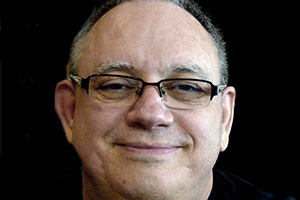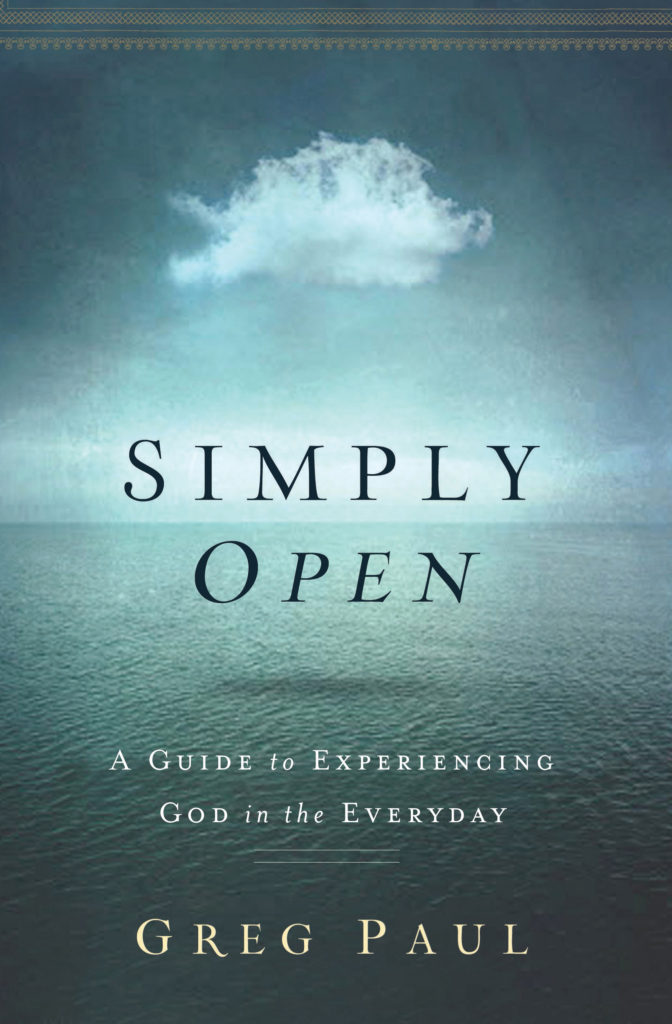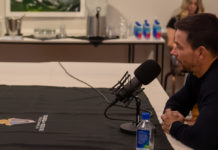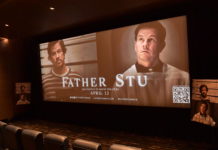
One thing is certain other than death and taxes: Catholics always have things to learn. Take me, I’m a Catholic, a convert who made a deliberate decision because, for me, who could argue with the history that Christ created? I write for a Catholic newspaper and belong to a Catholic religious order, yet I’m about to unleash a review of a book written by a non-Catholic Christian pastor.

Say what?
Pastor Greg Paul grabs a universal truth in his new book, “Simply Open: A Guide to Experiencing God in the Everyday.”
The first thing that struck me about the book is the sheer number of synonyms for the word “open”: “to unveil,” “to unlock,” “to unclench,” “to invite,” “to create passage,” and “to begin,” among them. He adds, “openness means generosity and truthfulness and clarity, spaciousness, fearless receptiveness, and a willingness to be moved.” What then does it mean to be open to God and how might we do that? The world is busy, noisy, violent, and yet amid the running and hiding we do, being open to God is the only way to experience constant conversion we need to form and reform our lives to follow God’s will. Paul considers openness the proverbial two-way street, to know and to be known. He further states that openness has enemies such as “fear, weariness, insecurity, past traumas and disappointments, pride [and] selfishness.”
Simply Open: A Guide to Experiencing God in the Everyday
Publisher: Thomas Nelson
Author: Greg Paul
Published: Jan. 6, 2015
Length: 240 pages
ISBN: 978-1400206681
Order: thomasnelson.com/simply-open
Busyness is our number one problem but is not exclusive to our postmodern era. Throughout history, people have tried to seek the answer for worldly busyness and Paul mentions a dozen or so people, the usual suspects like: John of the Cross, Teresa of Avila and Thomas Merton among many others, which, as he admits, are all Catholic.
What Paul wants to do is suggest to us a contemplative path that involves our senses. He writes, “if our senses are the means by which our inner selves see the realities that surround us, they are also passages through which the Divine may enter our minds and hearts and take up residence.”
I might point out here that Paul has just discovered Catholicism, what with our ornate churches, statues of everybody, artwork, bread and wine, incense, and, as our Bishop aptly demonstrated in a church dedication recently, slathering chrism all over the place. If Christ is our reality, then what Paul suggests stands to reason, though I think he might have picked up on all this when he decided to spend his sabbatical at a Benedictine monastery on the Isle of Wight. Benedictines can do that to you.
He begins with the opening of the eyes. Paul reminds us of how much our daily lives are taken up with sight. “I see,” we say at the moment of comprehension. “See you later,” we say in parting. Eyes are windows of the soul, “the eye is the lamp of the body,” Jesus said (Matt 6:22). How do we see God, how does He see us?
Of ears, he reminds us of how important sound is to us — music, another voice, the whisper of God. When God speaks, what do we hear?
Smell, neuroscientists say, is the sense most directly connected to the memory. Is that cookie smell in the bakery reminiscent of grandma? How are we to receive the fragrance of God without nostrils that are open?
“Lord, open my lips, and my mouth shall declare your praise,” read at the beginning of the Liturgy of the Hours. “Taste and see that the Lord is good” (Ps. 34:8). Praising the Lord aloud is one of the primary things we do as a Church.
Paul asks us about our hands. What happens when we open our hands to God? What happens when He opens his hands to us?
In each of these chapters, Paul presents us with specific prayers directed toward the opening of the sense, along with a summary, and an examen for reflection or discussion.
Paul makes certain that we also understand the opening of heart and mind, as he brings it all together walking us toward the complete contemplative habit.
Anything that helps us move past the busyness of life and find our way to contemplation to experience God in the every day absolutely must be good. Calling all Catholics,
here’s a brother who can help you on your way.






